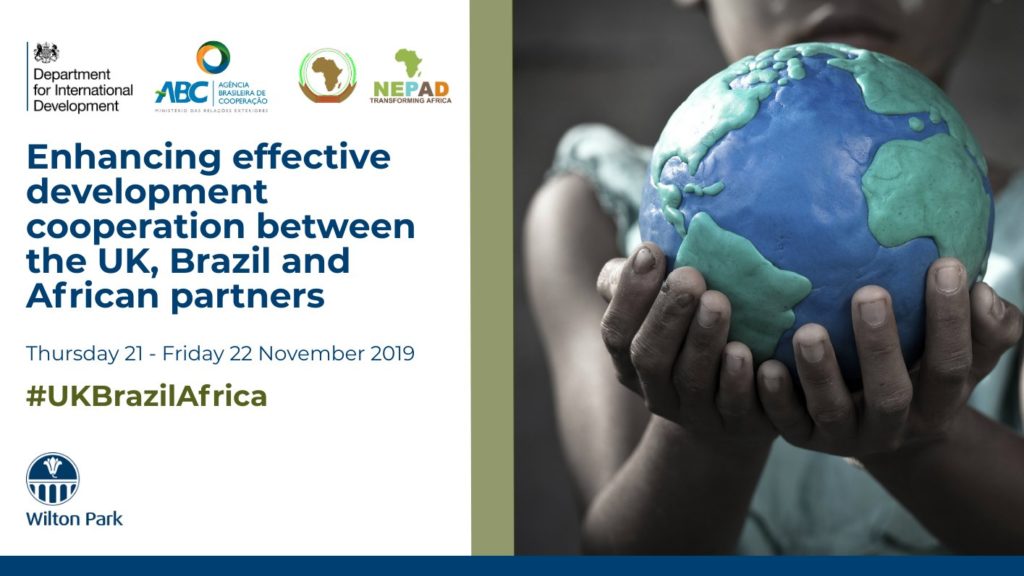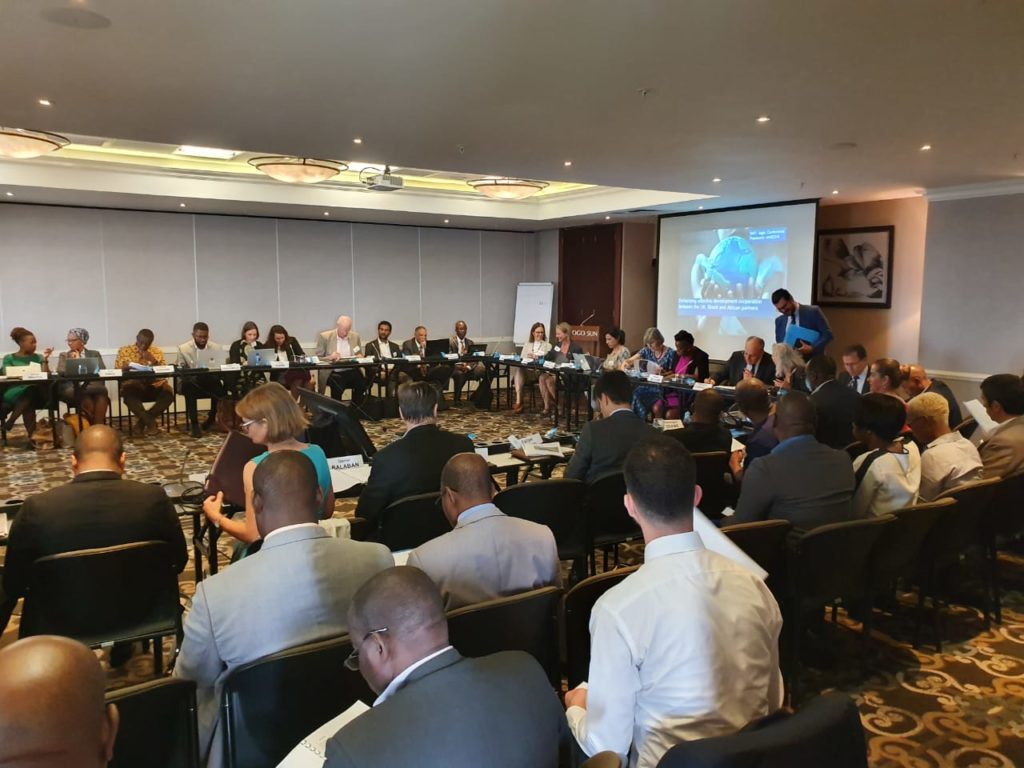
This week, about 50 people from the UK, Brazil and from several African countries were in Maputo, Mozambique, for a round-table dialogue to discuss how to strengthen and maximise opportunities for effective trilateral development cooperation between the UK, Brazil and African partners. The director of the World Food Programme (WFP) Centre of Excellence against Hunger, Daniel Balaban, was the facilitator of one of the event’s sessions.
The event named Enhancing effective development cooperation between the UK, Brazil and African partners (WP1640) was convened by Wilton Park in partnership with the Department for International Development (DFID) UK, the Brazilian Cooperation Agency (ABC) and African Union Development Agency (AUDA)-NEPAD, with the support of the Mozambican government. It formed part of the ongoing partnership between ABC and DFID in Brazil, and followed significant work between Brazil and the UK, including a mapping study which was discussed at the meeting.
The plenaries’ and sessions’ subjects ranged from health and well-being to agriculture, from urbanisation to natural resource-based innovation. The participants sought to: identify fields where UK, Brazilian and African expertise and technical assistance would complement each other, providing ‘value-added’ to development outcomes; identify knowledge and capacity gaps in which trilateral cooperation can have the most impact to address development challenges; and, advance a more strategic approach to support long term sustainable development, prosperity and knowledge sharing in and between local contexts for all partners.
Daniel Balaban, Director of WFP Centre of Excellence against Hunger, was the facilitator of the session of which the theme was “Sustainable and inclusive agri-food systems”. Together with Rodolfo Oliveira, Supervisor of International Cooperation of the Brazilian Agricultural Research Corporation (EMBRAPA), and Pearson Jasi-Soko, Assistant Chief Agribusiness Officer of the Ministry of Agriculture and Food Security of Malawi, they explored environmentally sustainable and socially inclusive agri-food practices (in farming, commercialisation, consumption and disposal) that can lead to diversified and resilient agri-food systems that leave no one behind. One of the best-practices mentioned was the Brazilian National Programme of School Feeding (PNAE) that reduced childhood malnutrition through a school feeding programme linked to purchasing food locally from low-income small-scale farmers.






